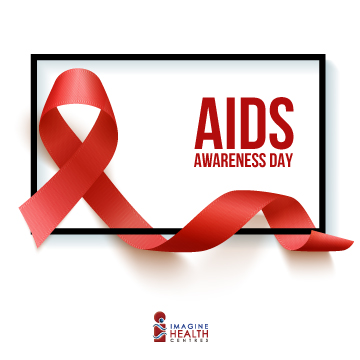AIDS Awareness Day
According to the Public Health Agency of Canada, at the end of 2014, an estimated 65,040 people were living with HIV in Canada and 26,400 people with HIV had died due to an HIV-related illness or other cause.
HIV (or human immunodeficiency virus) weakens your immune system, your body’s built-in defence against disease and illness.
Anyone can be infected with HIV. You can have HIV without knowing it. You may not look or feel sick for years, but you can still pass the virus on to other people.
Without HIV treatment, your immune system can become too weak to fight off serious illnesses. HIV can also damage other parts of your body. Without treatment, you can eventually become sick with life-threatening infections. This is the most serious stage of HIV infection, called AIDS (or acquired immunodeficiency syndrome).
There is no vaccine to prevent HIV but there are things you can do to avoid passing or getting HIV.
There Is No Cure for HIV… But There Is Treatment
There is no cure for HIV, but with proper treatment and care, most people with HIV can avoid getting AIDS, stay healthy and live a long life.HIV drugs have to be taken every day. They cannot get rid of HIV but they can keep it under control. They can also dramatically lower the risk of passing HIV during sex.
Who Can Get HIV?
Anyone can get HIV, no matter…
- your age
- your sex
- your race or ethnic origin
- who you have sex with
How Does HIV Get Passed from One Person to Another?
Only 5 body fluids can contain enough HIV to infect someone:
- blood
- semen (including pre-cum)
- rectal fluid
- vaginal fluid
- breast milk
HIV can only get passed when one of these fluids from a person with HIV gets into the bloodstream of another person—through broken skin, the opening of the penis or the wet linings of the body, such as the vagina, rectum or foreskin.
HIV cannot pass through healthy, unbroken skin.
The two main ways that HIV can get passed between you and someone else are:
- through sex
- by sharing needles or other equipment to inject drugs (including steroids or hormones)
HIV can also be passed:
- by sharing needles or ink to get a tattoo
- by sharing needles or jewellery to get a body piercing
- by sharing acupuncture needles
- to a fetus or baby during pregnancy, birth or breastfeeding
HIV cannot be passed by:
- talking, shaking hands, working or eating with someone who has HIV
- hugs or kisses
- coughs or sneezes
- swimming pools
- toilet seats or water fountains
- bed sheets or towels
- forks, spoons, cups or food
- insects or animals
HIV and Sex
HIV can be passed during sex (this includes vaginal, anal and oral sex and sharing sex toys). But there are things you can do to practice safer sex. You can protect yourself and your partner(s) from HIV by doing the following:
- Use a latex, polyurethane or nitrile condom correctly every time you have vaginal or anal sex. You can use an external condom (sometimes called a male condom) or an internal condom (sometimes called a female condom). Throw out the condom after each sex act and do not use a condom with more than one partner. This will protect you from HIV as well as other sexually transmitted infections, such as gonorrhoea and syphilis. (Use only water-based or silicone-based lubricants with latex condoms. Oil-based lubricants can make them break.)
- If you are HIV-positive and not already on HIV treatment, talk to your doctor about starting treatment. HIV drugs can not only protect your health but also greatly reduce the risk of HIV transmission.
- If you are HIV-negative and at higher risk for HIV, you might be a candidate for PrEP or pre-exposure prophylaxis. This involves an HIV-negative person taking certain HIV drugs every day to reduce their risk of getting HIV. Talk to your doctor to find out if PrEP might be right for you.
- Get tested for STIs regularly. Having an STI increases your risk of getting and passing HIV and other STIs.
- Avoid sharing sex toys (and if you do, cover each one with a new condom before each use). It is also important to clean your toys between vaginal and anal use.
- Use a condom or dental dam every time you have oral sex. Oral sex is much less risky than vaginal or anal sex, but it’s not completely safe.
Choose forms of sexual stimulation that pose little or no chance of HIV, like masturbation or sensual massage.
People can have HIV or other STIs without knowing it because these infections often do not cause symptoms. Don’t assume that your partner knows if they have HIV or any other STI. The only way to know for sure is to be tested.
Source: www.catie.ca

